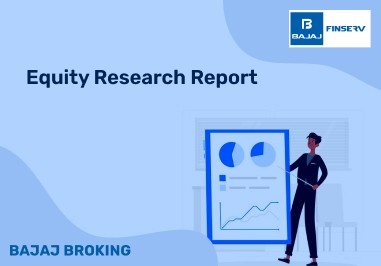Dalal Street is the most important street in India from a financial perspective. Located in South Mumbai, Dalal Street is home to the Bombay Stock Exchange (BSE), the oldest and one of the largest stock exchanges in India. Hence, Dalal Street has been the pre-eminent financial district of India for several decades now. In short, Dalal Street is to India what Wall Street is to the US.
Understanding the Meaning of Dalal Street in Detail
Let us discuss the meaning of Dalal Street in detail. In Hindi, 'dalal' translates to 'broker' or 'intermediary,' highlighting its core function as a financial hub. Hence, Dalal Street is a place where many brokers come together to trade in stocks on behalf of their clients. Besides, they also buy and sell shares on their own account.
Dalal Street helps not only in buying and selling of shares but it also enables companies to raise capital, which allows them to grow and expand. Therefore, Dalal Street symbolizes the heart of the Indian capital market.
It also acts as a barometer for the Indian economy. By observing the mood of Dalal Street, you can gauge how the economy is going to perform. Hence, it is extremely important. Therefore, it is not surprising that some of the best minds in India, like economists, statisticians, analysts, and financial advisors, keep track of the happenings on Dalal Street.
It was in the year 1875 that the BSE was established on Dalal Street. Initially, it used to be a narrow lane with the offices of several brokers. However, over the years, it has completely transformed with many skyscrapers and offices of brokers and several other financial institutions.
Today, we can find the offices of prominent brokers, Indian and foreign banks, and several other businesses related to the stock market on Dalal Street. Now, let us delve deeper into this topic by discussing aspects like the importance of Dalal Street and how Dalal Street works.
The Importance of Dalal Street
Economic Importance: Dalal Street houses the BSE, which is one of the largest stock exchanges in the world. It facilitates trade in securities, helps companies raise capital, and enables investors to find the right companies to invest in. Therefore, Dalal Street is extremely important from an economic perspective. Besides, due to the presence of several brokers, investment banks, financial institutions, and the media in its vicinity, Dalal Street is easily the most important street when it comes to the Indian capital market.
Cultural Importance: Anything who thinks of investing in stocks in India thinks of Dalal Street and the BSE. Hence, Dalal Street stands for the economic growth and financial aspirations of Indian investors. In the pre-1990 period, only a few people used to invest in the stock market in India. However, from 1990 onwards, as the Indian economy was liberalised and thereafter grew, a significant number of people began investing in shares. The growth of Dalal Street symbolises the spirit of entrepreneurship, risk-taking, hard work, and willingness to succeed of all kinds of investors in India.
Additional Read: What is Demat Account: Importance, Features and Types
The History of Dalal Street
Beginnings: The history of Dalal Street and the BSE is interlinked. In the 1830s, corporate shares (most prominently of banks and cotton presses) began to be traded in Mumbai. Sometime in the 1850s, a group of brokers started gathering in Mumbai’s Horniman Circle. Later, in the 1870s, as the number of brokers grew, Dalal Street came into existence.
Growth phase in independent India: Dalal Street and the BSE grew astronomically in independent India due to a number of developments. For example, the Securities Contracts Regulation Act formalised stock trading in 1956. The US 64, the first mutual fund scheme in India, was launched by UTO in 1964, which raised Rs. 6,400 crore by the late 1980s. The initial public offering (IPO) of Reliance Industries in 1977 managed to get subscribed by a significant number of retail investors.
The late 1980s and the post-liberalisation phase: The financial market regulator – the Securities and Exchange Board of India (SEBI) – was first established and then given statutory power in 1992. Then, in 1992, the National Stock Exchange (NSE) was established. Subsequent to that, dematerialisation of shares was introduced in the 1990s. At the same time, the Indian economy started to grow at a high rate. Hence, a significantly high number of people started investing in the stock market. Therefore, the exchanges like the BSE and NSE grew and the importance of Dalal Street soared.
What Happens on Dalal Street?
Trading and Financial Markets: Trading on Dalal Street is the mechanism through which the market value of publicly listed stocks is arrived at every day. As a considerable number of investors buy and sell stocks of listed companies, their price moves up and down based on supply and demand. The prices of listed securities also get impacted by market-related news, trends, and economic indicators (like GDP growth, inflation, interest rates, etc.). All these factors, put together, show us the direction in which the Indian financial markets are headed.
The Role of Investment Banks and Brokers: Intermediaries like brokers and investment banks play an extremely important role on Dalal Street. They facilitate the buying and selling of shares. Besides, they advise their clients on which shares to buy and sell, and they also provide market-related insights. Whenever companies raise capital through IPO or follow-on public offer (FPO), these intermediaries play the role of a facilitator.
Importance of the Bombay Stock Exchange (BSE): The BSE, which is located on Dalal Street, is the oldest stock exchange in India. It helps people trade in securities and acts as a barometer of the country's financial market. Through several activities, it promotes the cause of investment, thereby providing confidence to all kinds of investors. Thanks to several awareness programs conducted by the BSE, retail investors even in small towns and villages of India have started investing in the stock market.
Dalal Street vs. Wall Street: A Comparative Analysis
If you want to understand the comparison between Dalal Street and Wall Street in detail, please go through the following table:
Criteria
| Dalal Street
| Wall Street
|
Location
| Dalal Street is located in South Mumbai, India.
| Wall Street is located in Lower Manhattan in New York City, the US.
|
Origins
| Dalal Street started sometime in the late 19th century, as brokers began conducting their activities in Mumbai and the BSE was established.
| The name “Wall Street” owes its origins to a wall built by Dutch settlers on Manhattan Island sometime in the 17th century. These settlers wanted to keep the British and pirates away and hence they constructed a wall. While the wall was never used for its objective, it left a lasting legacy, as the street was named after it.
|
Which economy/sectors these streets represent
| Dalal Street is a barometer for the Indian economy, as various kinds of companies (manufacturing, information technology, retail, telecom, banks, etc.) are listed on the BSE.
| While Wall Street is a global financial hub, it primarily represents the economy of the US. Many companies from sectors like technology, financial services, energy, healthcare, and manufacturing are listed there.
|
Impact
| Dalal Street mostly impacts Indian investors and institutions. That said, a number of foreign investors also invest in the Indian stock market. Hence, they get impacted, too, by Dalal Street.
| Wall Street is a global financial hub. Hence, its activities impact the US and many other countries in the world.
|
Stock exchanges
| The oldest stock exchange in India and Asia, the BSE, is located on Dalal Street.
| Wall Street is home to many famous stock exchanges, like the New York Stock Exchange (NYSE) and NYSE American. Another major stock exchange, NASDAQ, operates close to Wall Street.
|
Benefits of Dalal Street
The main benefits of Dalal Street are explained below:
a) Acts as a bridge between companies and investors: One of the most famous IPO success stories in India is of Reliance Industries. The brokers and other intermediaries operating on Dalal Street helped Reliance Industries raise the capital. That alone explains how Dalal Street acts as a bridge between companies that need capital to expand and investors who want to put their hard-earned earnings in those companies for a return.
b) Serves as a barometer for the Indian economy: Various participants of Dalal Street (brokers, analysts, and economists) are adept at decoding where the Indian economy is headed. Even if you are a small investor who has just opened a trading account, you can understand the direction of the Indian economy by seeing how various participants at Dalal Street and the BSE are buying and selling shares.
c) Allows various market participants to interact with each other: Dalal Street is home not only to the BSE but also to several brokers, investment banks, banks, and other financial institutions. The street allows all these participants to be in touch with each other, enabling them to perform their role as financial market intermediaries efficiently.
Limitations of Dalal Street
While Dalal Street is central to financial markets in India, it has a few limitations as well:
a) Can be risky for retail investors: A recent study by SEBI called “Analysis of Intraday Trading by Individuals in Equity Cash Segment” highlighted that more than seventy percent of retail traders lose money in the intra-day cash markets. Typically, retail traders get too attracted by sensational headlines and end up investing without doing proper research. On the other hand, large traders have research desks, which allow them to make better trading decisions. This makes retail traders susceptible to losses in the stock market.
b) Not good for investors who are not disciplined: Dalal Street is not a place for investors who cannot exercise self-discipline. Listed stocks witness an increase or decrease in their value every now and then. If you as an investor do not know when to buy or sell them and you just react to news, then it is highly likely that you will lose your money on Dalal Street. Hence, if you want to make money on Dalal Street, you have got to be disciplined and not react to market news, especially when not required.
Additional Read: Call and Put Options: Meaning, Types & Examples
Conclusion
If you have just opened a trading account and have started investing in shares, you should understand how various operators work on Dalal Street. That will tell you how the stock market functions. Once you know how Dalal Street works, you will be able to make investment-related decisions with a greater degree of confidence.
Disclaimer: Investments in the securities market are subject to market risk, read all related documents carefully before investing.
This content is for educational purposes only. Securities quoted are exemplary and not recommendatory.
For All Disclaimers Click Here: https://bit.ly/3Tcsfuc














